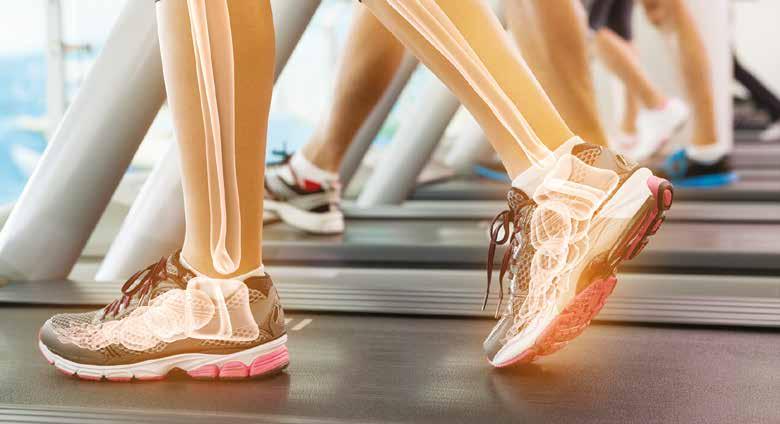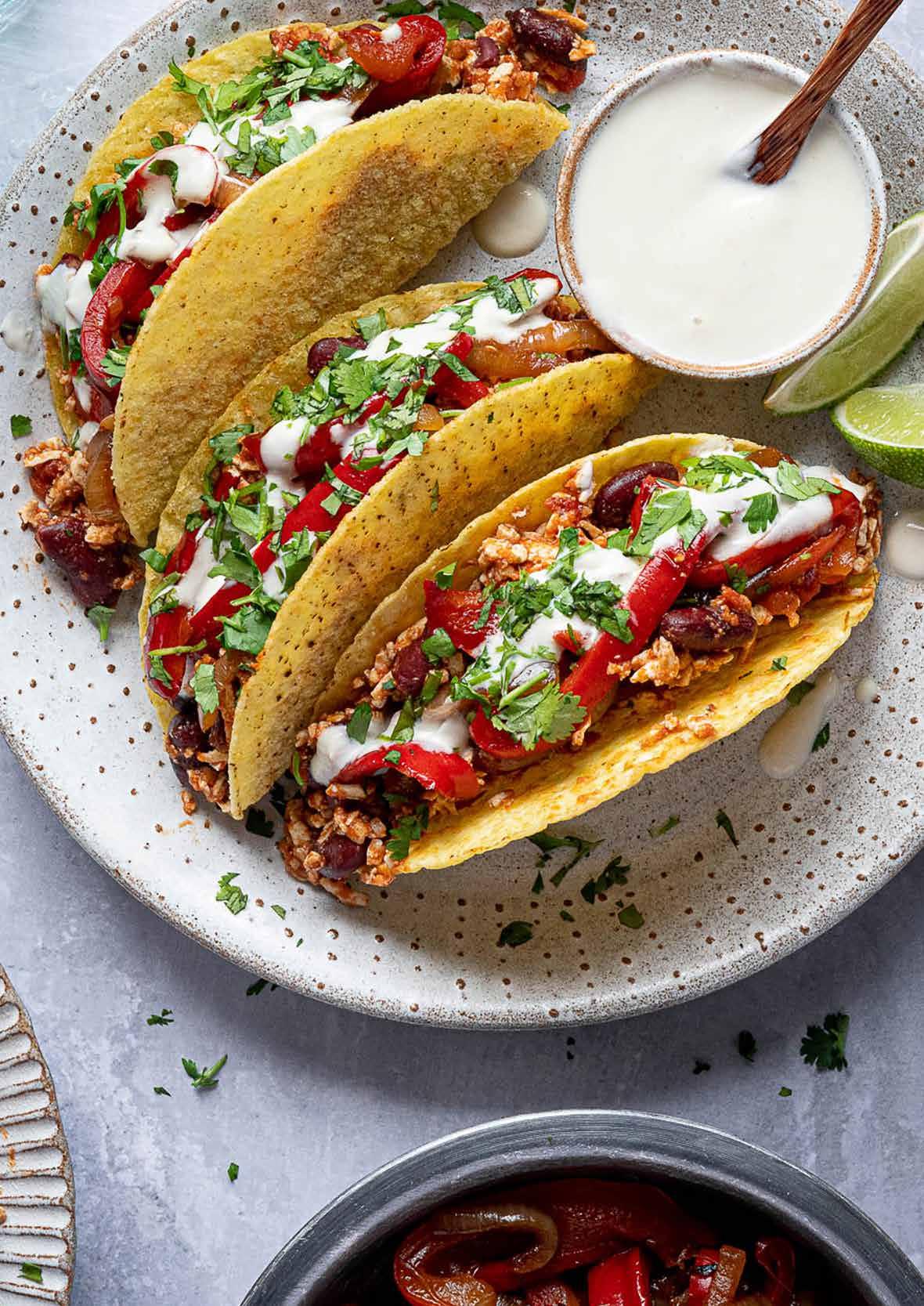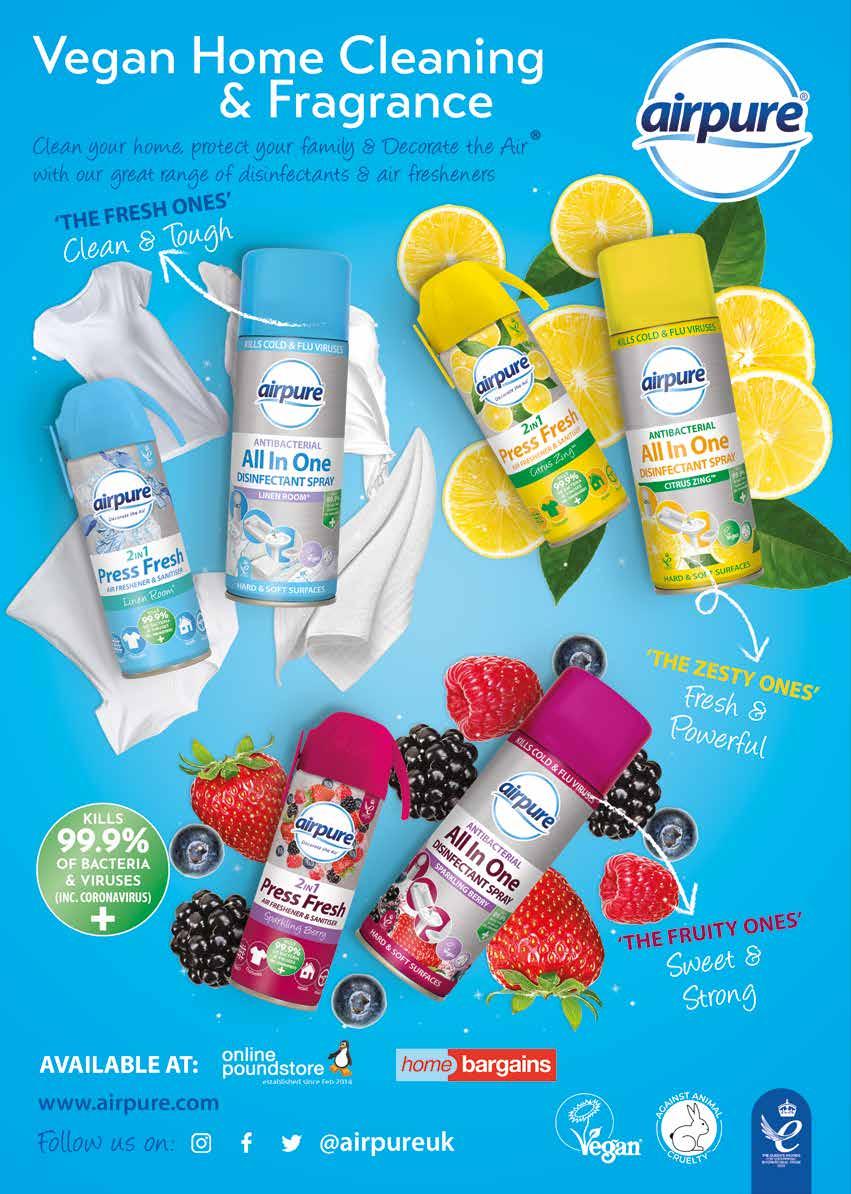
4 minute read
Nutrition
BONE HEALTH
EPIC-Oxford Study
Advertisement
In November 2020, EPIC-Oxford researchers released results from a large-scale study, showing increased rates of bone fractures among vegans in the UK. This paper considers a number of factors, including calcium, vitamin D, protein, vitamin B12, activity and body mass index (BMI). Also, previous EPIC-Oxford research has suggested that vitamin A, zinc and selenium deserve attention when planning a vegan diet.
It is unclear what caused higher fracture rates in this group of vegans and more research is required before we can draw firm conclusions about vegan bone health. However, this finding gives us an opportunity to look at potential factors associated with increased bone fractures, and how we can advocate vegan health through well-planned diets and healthy lifestyle choices, optimising bone health for present and future generations.
Bone health of vegans
When it comes to bone health, two nutrients that receive particular attention are calcium and vitamin D. Vitamin D is required to regulate calcium and phosphate balance to keep bones healthy and strong. Sunlight is our main source of vitamin D, and UK public health guidance recommends that people supplement their daily diets with 10 micrograms of vitamin D between October and March as a minimum.
The UK target for calcium is 700 mg a day, and it is recommended that everyone’s daily diets contain at least two rich sources. A ‘rich source’ of calcium is one with high calcium content and good absorbability, such as fortified alternatives to milk and yoghurt (organic versions will not be fortified), calcium-set tofu, fortified ready oats and soya and linseed bread fortified with extra calcium.
Optimal protein intake benefits bone health when accompanied by an adequate intake of calcium, and this type of food can be a good source of essential minerals such as iron and zinc. Therefore, quality proteins such as chickpeas, lentils, tofu, shelled hemp seeds, garden peas and edamame beans should be included in meals.
Combining these protein sources with nutrient-rich grains such as wild rice, amaranth, buckwheat and quinoa can provide a well-balanced, protein-rich meal, particularly useful for fuelling an active lifestyle. Some activities help to keep our bones strong, such as muscle strengthening activities like weightlifting and higher impact activities like jumping and skipping.
Vitamin K is involved in the process of maintaining and regenerating bone tissue. Sources of vitamin K are not hard to find in a vegan diet, and include green leafy vegetables such as spinach, kale and broccoli.
Some reports suggest that overconsumption of vitamin A can have adverse effects on bone health, however this is thought to be from over-use of supplements as opposed to food sources. Ensuring an adequate intake of vitamin A from food sources can help to maintain bone health – for example, you could include sweet potato, carrots, spinach or butternut squash in your daily diet.
The EPIC-Oxford paper found higher fracture rates in vegans with lower BMI. Maintaining or working towards a healthy weight can help us to look after our bones. Also, BMI does not consider muscle health and it is possible that vegans with lower BMI may have poorer muscle strength, which can increase fracture risk.
Take home tips
• Eat at least two calcium-rich foods daily • Supplement vitamin D from October to March as a minimum • Include dietary sources of vitamin A and vitamin K daily • Include quality proteins at each meal • Aim to maintain or work towards a healthy BMI • Include muscle strengthening and higher impact exercises in your routine
For information about vegan nutrition, check out the resources at vegansociety.com/nutrition. For well-balanced vegan recipes, head over to vegansociety.com/thriving.
Not only is this recipe an excellent source of quality plant protein, it also provides two thirds of your daily calcium needs – a perfect combination for prime bone health!
VEGAN ‘FISHCAKES’ serves 4 (photo on the right) TOFU TACOS serves 4

Ingredients
For the sour cream
120 g calcium-fortified soya yoghurt 1 lime, juiced 1 tsp nutritional yeast flakes For the tacos
1 tsp smoked paprika 1 tsp ground cumin 1 tsp chilli powder 4 garlic cloves, crushed Black pepper, to taste 1 tbsp rapeseed oil 1 x 400 g block of firm calcium-set tofu 1 x 400 g tin of kidney beans, washed and drained 1 x 400 g tin of chopped tomatoes 1 medium white onion, sliced 2 bell peppers, deseeded and sliced into strips 8 x taco shells 1 bunch of coriander, chopped
Directions
For the sour cream, mix the soya yoghurt, lime juice and nutritional yeast together.
Make a marinade for the tofu by mixing paprika, cumin and chilli powder, crushed garlic, black pepper and oil together. Take the block of tofu and remove excess water by patting it dry. Grate the tofu into the marinade, mix and coat well.
Heat a pan and fry the minced marinated tofu until browned. Drain and wash the kidney beans and add to the pan along with the chopped tomatoes and heat through.
In a separate pan, lightly fry the onions and peppers in oil.
Heat the tacos in a preheated oven for 5–6 minutes until warm and crisp.
Fill the tacos with the cooked mixture and top with peppers, onions, sour cream and chopped coriander.
Nutrition tips
• Calcium-set tofu and fortified soya yoghurt are some of the richest calcium sources you can get from a plant-based diet. • Consider adding smashed avocado or a chunky salsa for some extra veg.
Recipe provides
kcal 407 fat 14 g sat fat 2.7 g fibre 11 g protein 23 g salt 0.54 g mg calcium 450














